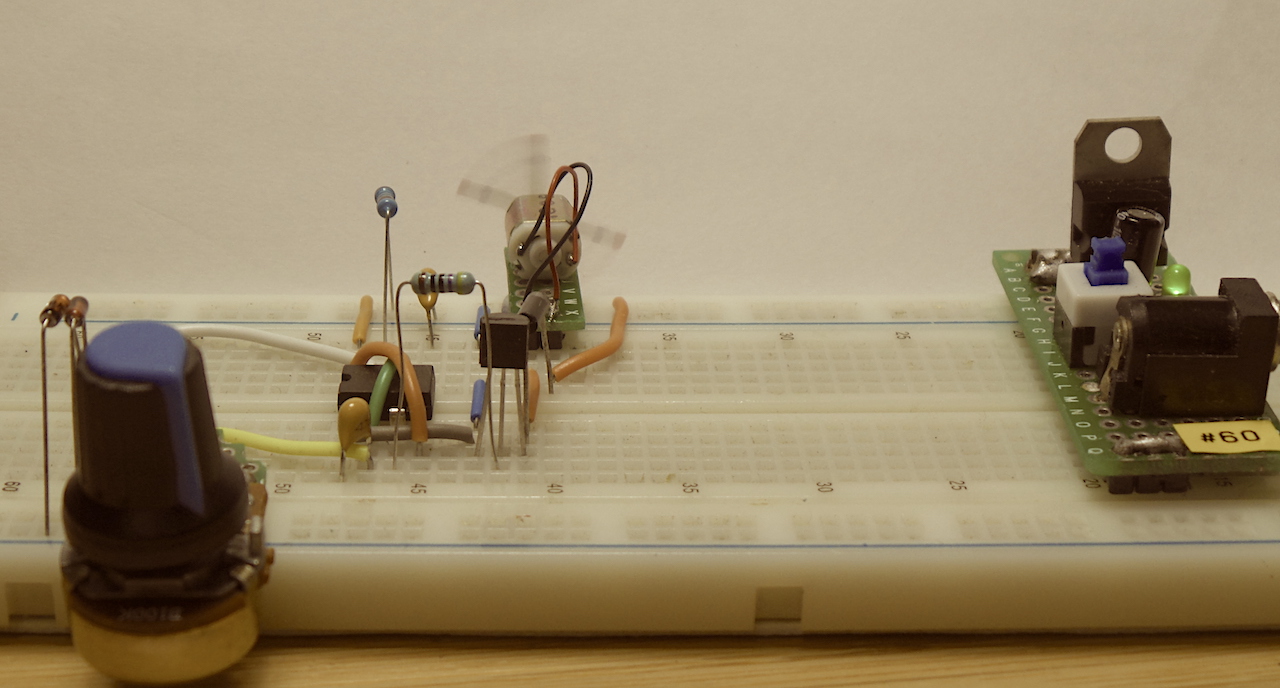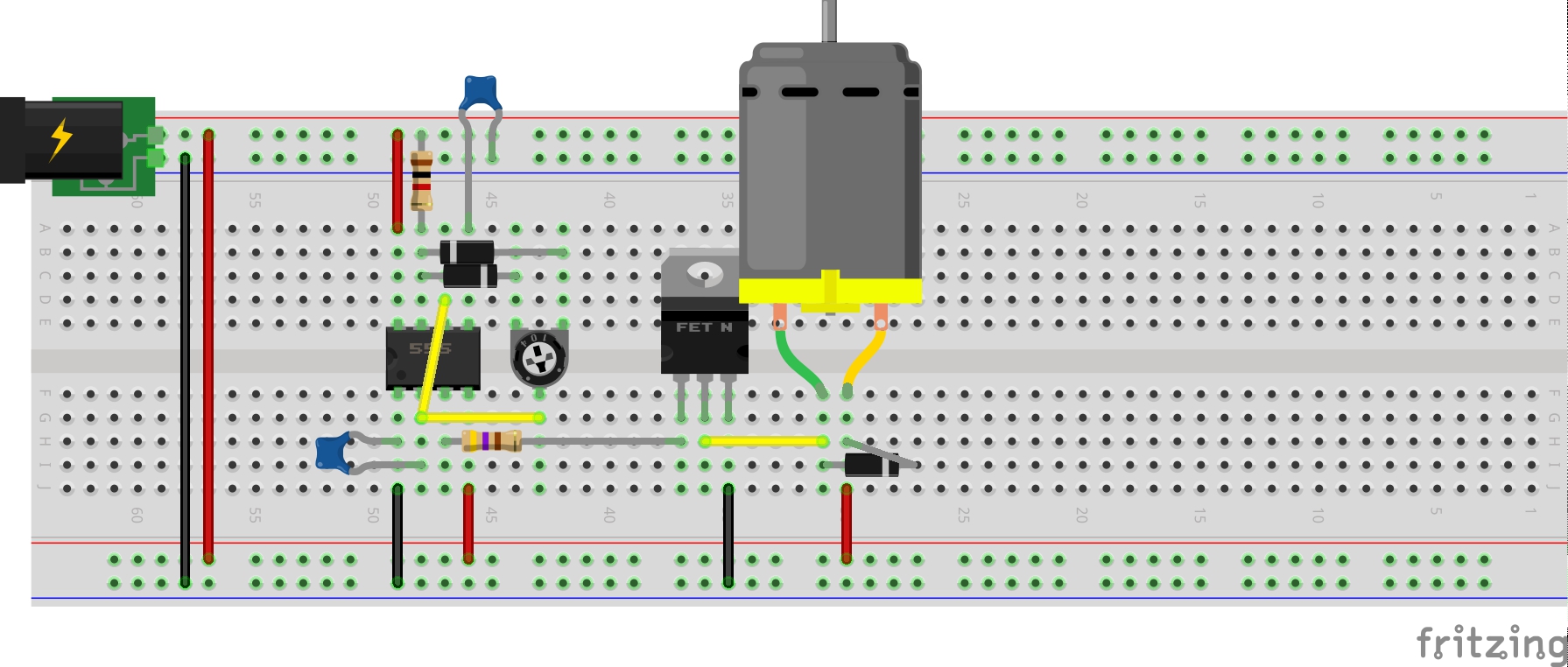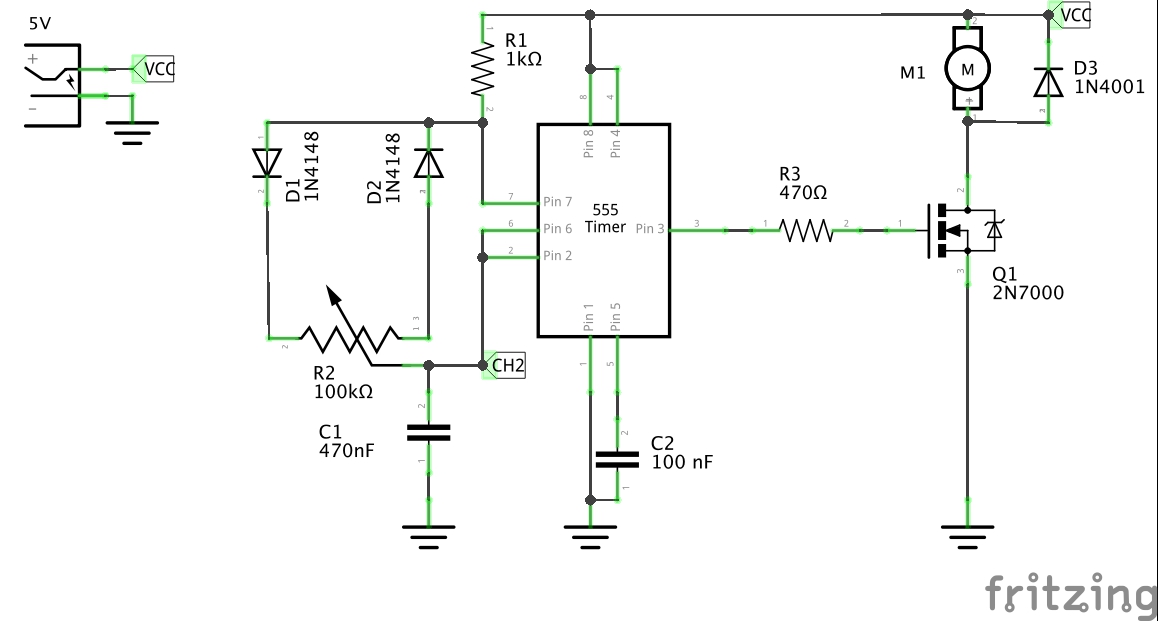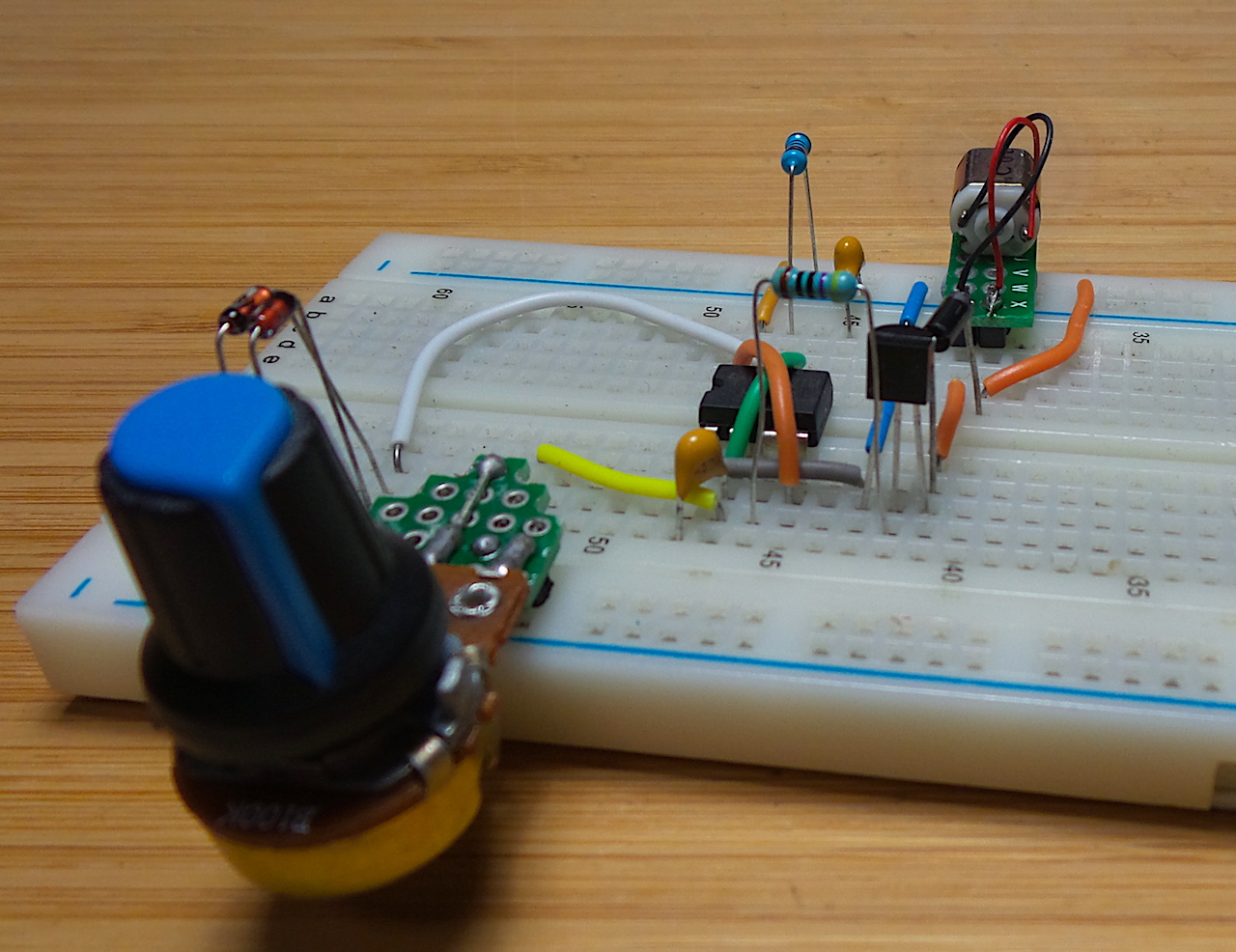#573 555 PWM Motor Control
Testing small DC motor control with a 555 time PWM signal

Here’s a quick demo..
Notes
Pulse-width Modulation (PWM) is a common method for controlling the speed of DC motors.
The PWM duty cycle controls the nett power being provided to the motor, but by maintaining a constant “on” voltage, the torque is not greatly affected by speed.
The PWM frequency is not so important, however there will be a “sweet spot” for a particular motor:
- too high, and low speed control can be affected (not enough power delivered in each “on” cycle to move the motor)
- too low, and vibration and “chugging” can be a problem
- need to avoid resonant frequencies of the mechanical assembly
A 555 timer makes a simple controller. Here I’ve used a “diode-steered” variable duty cycle configuration, with PWM duty cycle controlled with a 100kΩ variable resistor.
The motor I’m testing with is a small DC motor, with a fly-back diode to dissipate the voltage spike as the motor load is switched.
Construction




